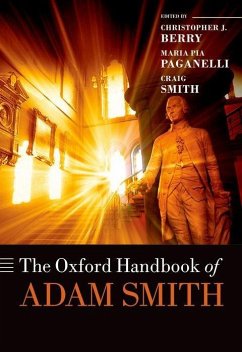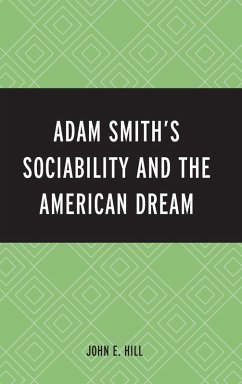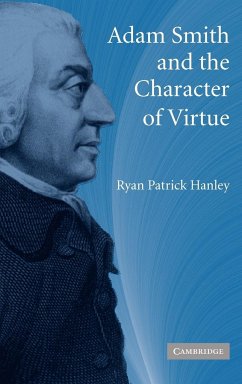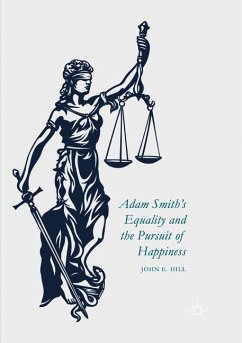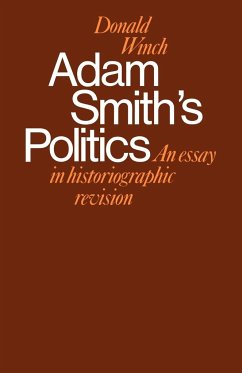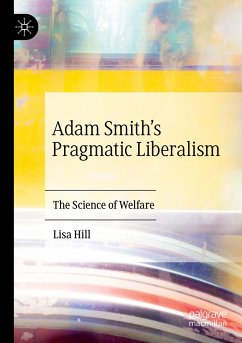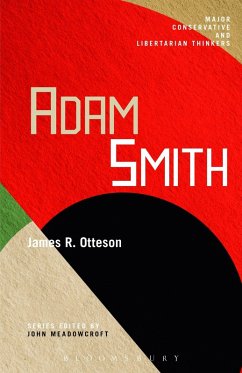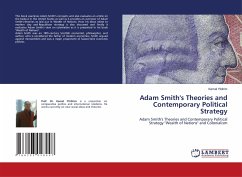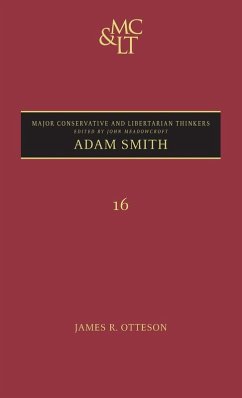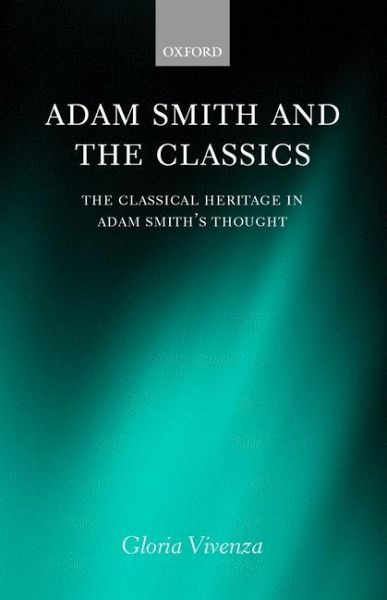
Adam Smith and the Classics 'The Classical Heritage in Adam Smith's Thought '
Versandkostenfrei!
Versandfertig in 1-2 Wochen
208,99 €
inkl. MwSt.

PAYBACK Punkte
104 °P sammeln!
Adam Smith and the Classics analyses the influence of classical culture-the work of Plato, Aristotle, Cicero, and the Stoics-on Adam Smith's thought. Vivenza bases her arguments on elements of Smith's work that can be shown to be precise reflections of passages from the classical authors, and on Smith's own acknowledgements that he was so influenced. The bulk of the classical nuances occur in Smith's moral and natural philosophy, but Vivenza also shows that the classics had some impact on his economic thought. The book represents a complete survey of all Adam Smith's writings, and is organized by arguments: natural philosophy, moral philosophy, jurisprudence, topics of economic interest, and literature. A further chapter discusses the very recent consensus among a number of scholars that Smith's writings display strong elements of Stoicism. Adam Smith and the Classics is a significant book, since it shows just how strong an impression the classical training had on the intellectual elite of the eighteenth century. So much so that the classics have left their mark on the scholarship and writings of the time.
This book defines the relationship between the thought of Adam Smith and that of the ancients--Plato, Aristotle, Cicero, and the Stoics. Vivenza offers a complete survey of Smith's writings to illustrate how classical arguments shaped opinions and scholarship in the eighteenth century.



